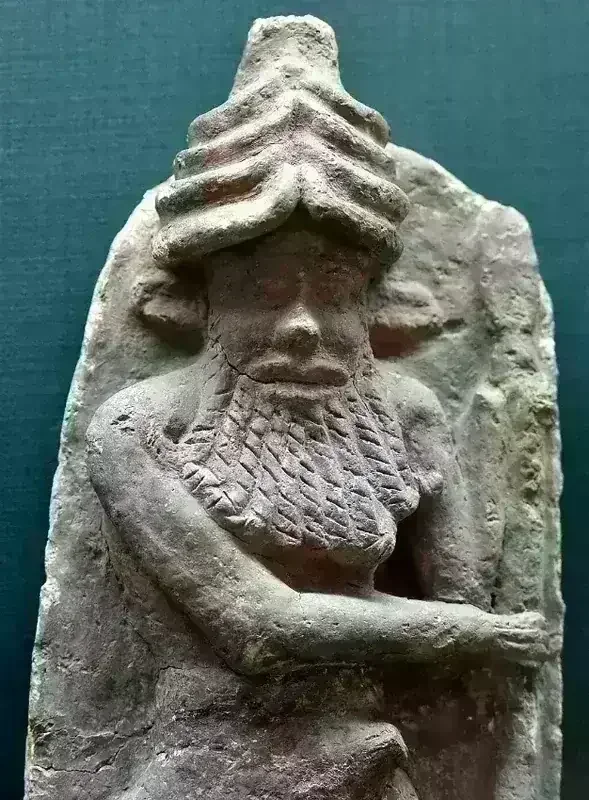Enkidu

Enkidu was a legendary figure in ancient Mesopotamian mythology, best known as the close companion and friend of Gilgamesh, king of Uruk. Their adventures were recorded in Sumerian poems and the famous Akkadian Epic of Gilgamesh, composed during the 2nd millennium BC. As the earliest literary depiction of the "wild man" archetype, Enkidu represents humanity in its natural, uncivilized state.
His character evolved through different versions of the stories—from a servant-warrior in early Sumerian poems to a more complex figure in the Old Babylonian version (1300–1000 BC). Some scholars suggest Enkidu may be represented in Mesopotamian art as the "bull-man" hybrid creature, possessing a man's head, arms, and torso combined with a bull's horns, ears, tail, and legs. Through his interactions with humans, Enkidu gradually becomes civilized, with his integration into society culminating in an epic wrestling match with Gilgamesh.
Enkidu functions as a counterpoint to Gilgamesh—equally powerful but representing the natural world in contrast to Gilgamesh's urban sophistication. His character evolved across Sumerian literature, developing from Gilgamesh's servant into his beloved friend and comrade. In the epic, Enkidu is created specifically to challenge the tyrannical Gilgamesh, but they instead form a profound friendship.
Together they defeat the monster Humbaba and the Bull of Heaven, but these heroic acts lead to Enkidu's divinely ordained death. His loss devastates Gilgamesh and drives him to seek immortality. Unlike many figures in Mesopotamian literature, Enkidu appears exclusively in stories connected to Gilgamesh and was never worshipped as a deity.
He is notably absent from lists of Mesopotamian gods. One rare reference outside the Gilgamesh stories appears in a Paleo-Babylonian incantation for quieting crying babies, which suggests Enkidu may have been associated with measuring nighttime hours, connecting to his role as a nighttime shepherd in the epic.


